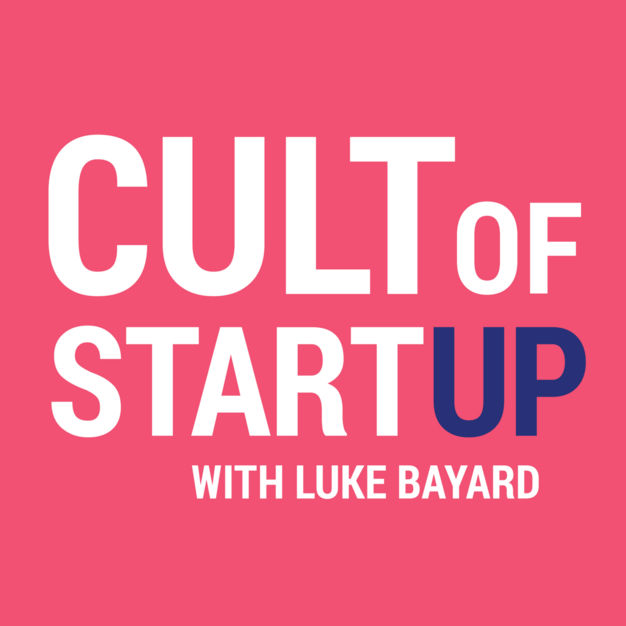
Cult of Startup Podcast
Luke Bayard: Entrepreneur, Business Strategist and Techie
On Cult of Startup, Luke Bayard, invites special guests to recall the early days of starting there business before reaching their success. Listen as they share stories and advice based on there horrible, embarrassing or awesome experiences. In each episode Luke takes a nothing-off-limits approach to discovering why entrepreneurs found success. This hour will feel like you're hanging with your startup buddies. The format is informative, loose and most of all entertaining.
- 39 minutes 6 secondsClean. Green. Caffeine. with Steve O'Dell and Robbie Page Founders of Tenzo Tea Matcha
Today's guests are the amazing Steve O’Dell and Robbie Page, the founders of Tenzo Tea. These two guys wanted to make a massive impact on the world through a product that really makes a difference in people’s lives.
In this interview we cover a wide range of topics from:
- What lead them to choose matcha over other energizing products?
- What are most important steps to get an E-commerce company off the ground.
- Why the lessons learned from playing professional sports directly translates to success in business.
If you'd like to catch the NEW LinkedIn Edition of the show, head over to my profile here: Luke Bayard.
Follow Tenzo on Social:
30 April 2018, 7:50 am - 1 hour 21 minutesI Don't Study Marketing, I Study People with Mark Kithcart
Mark Kithcart is the Vice President of Marketing, Sales, Client Management and Contracts at AVRS a software service for the automotive industry. Post graduation from Cal Poly San Luis Obispo Mark worked as a mechanical engineer, but he trained himself in the late hours of the night to be a professional marketer.
In this interview we discussed topics like:
- Why customer service is the lifeblood of any business?
- How to find a mentor?
- Why marketing comes down to human behavior?
- Why is it important to marry the right person when you are an entrepreneur?
Contact Mark:
Email: [email protected]
LinkedIn: Mark Kithcart
Articles Mentioned: The Complete Guide to Understanding Equity Compensation at Tech Companies
22 March 2018, 7:34 pm - 1 hour 3 minutesHow to Make Your Online Brand Stand Out on LinkedIn with Sandy Grigsby Founder of Brio Five
In 2005, Sandy Grigsby founded Brio Five, a creative studio specializing in branding, photography, web, and graphic design. She is most well known for her work as an Empowerment & Brand Photographer with over 15 years of industry experience working with high power CEOs to celebrities.
Sandy's talent lies in her ability to evoke and capture images that demonstrate a woman’s true essence and power.
Her in-depth knowledge of web design, coupled with her vast experience as a model, actress, and spokesmodel allow her to fully understand the branding needs of her clients.
Website: www.BrioFive.com Instagram: @BrioFive or @SandyInFocus LinkedIn: Sandy Grigsby
2 February 2018, 6:42 pm - 51 minutes 19 secondsThe Addiction to Progress with Erik Huberman Founder of Hawke Media
Erik Huberman is the Founder & CEO of Hawke Media, a full-service outsourced CMO based in Santa Monica, CA that launched in 2014 and has been valued at $60 million. In just 3 years, Hawke Media has grown from 7 to over 120 employees and has serviced 400+ brands.
Prior to Hawke Media, Erik founded, grew and sold Swag of the Month and grew Ellie.com’s sales to $1 million in four months. Erik is the recipient of numerous honors and awards including Forbes “30Under30”, Inc Magazine’s “Top 25 Marketing Influencers”, Influencive's "Top Influencive Influencers of 2017". Erik is a regular contributor to major media publications like Forbes, Entrepreneur, and Business Insider, and is proud to have and recently joined XPRIZE as their key marketing advisor.
Some Questions I Ask Erik:
- What is Hawke Media? 1:50
- What about the traditional marketing agency model is broken? 2:26
- How is Hawke Media's business model different from the competition? 4:50
- Where did the concept of an “outsourced CMO” come from? 5:38
- How did you start slinging Beanie Babies? 6:56
- Why did you focus on learning opportunities over making money in college? 13:09
- Why the hell did you take the LSAT? 15:18
- From your early entrepreneurship days, what are some of the greatest lessons you’ve learned from that time? 18:10
- What was Swag of the Month? 24:33
- What are some of the biggest lessons you took away from founding a ecommerce company? 25:40
- What advice do you have for young ecommerce companies? When does unit economics come into play? 26:30
- Take me through on how you sell 80k worth of product in 2 weeks? And how you did 2 million in the first 6 months? 30:30
- The fitness clothing brand completely changed their game plan all of the sudden, why do you believe that was a huge mistake? 33:15
- Why did you decide to start an agency over going to get a job? 35:51
- When you first started Hawke Media were you outsourcing or hiring people right here and there to cover the needs of clients? 39:23
- Walk me through the hiring process you used to grow Hawke Media? 40:19
- How do you qualify clients and how do you keep them happy? 41:57
- What would recommend to a startup looking hire agency? 44:22
- Why do have a huge neon sign in your office that says “Get shit done, learn quickly, be cool” and what does it stand for with Hawke Media? 48:40
Connect with Erik:
Twitter: @ErikHuberman
Instagram: @ErikHuberman
19 January 2018, 1:51 am - 1 hour 30 minutesCreative Control and the New Media with Nicole Behnam and Mariella Rudi Founders of Beyond the Interview
Nicole Behnam and Mariella Rudi are founders of the media company Beyond The Interview, where they curate a collection of interviews, essays, and social news. As two women who left full-time careers as successful journalists to pursue entrepreneurship, their story is one of taking creative control of their work and embracing a new age of personal, digital journalism.
In this show, Nicole and Mariella talk about their adventure in leaving their careers to pursue entrepreneurship, the importance of having a co-founder, writing authentically but still following a successful formula, and how to monetize a growing audience on any platform. They also discuss in general the media’s trend towards personal, vulnerable, and emotional news, and how young entrepreneurs can tap into these subjects to create a viral hits.
Some Questions I Ask Nicole and Mariella:
- What is Beyond the Interview? [1:34]
- What’s the dynamic with your friends who became influencers? [4:18]
- Why start this when you have full-time careers already? [10:10]
- Did you feel like your managers were telling you to write meaningless stories? [11:45]
- Is this what your parents wanted you to do? [21:26]
- What are the safe versus frowned-upon means of monetization? [27:19]
- Were you both straight-A students or more focused on entrepreneurship? [28:12]
- What are some subject matters that aren’t talked about enough today? [32:20]
- Are there any other noteworthy stories that might be surfacing soon? [38:11]
- How do you balance authenticity and following a popular writing formula? [40:00]
- Are college instructed social media courses helpful? [42:15]
- What’s been your most successful article and why was it successful? [48:20]
- What do you guys feel like is your next big milestone? [56:10]
- Has anyone ever turned down an interview? [59:29]
- Any other stand-out experiences when trying to reach out to people? [1:06.30]
- What advice do you have for entrepreneurs looking to get press coverage? [1:10:23]
- Should people be paying for PR? [1:15:10]
- What are some books you would recommend? [1:17:30]
- What advice do you have to future entrepreneurs? [1:24:50]
Some Things You’ll Learn in This Episode:
- BeyondTheInterview.com is a collection of interviews, essays, and social news.
- A deep dive into the thought process behind leaving a full-time job to pursue your own work.
- Why having a co-founder can create a strong sense of interdependence which is healthy for a startup.
- A lot of entrepreneurial relationships between founders start out as friendships, but it can also happen in the reverse direction.
- The struggle of female founders to fight societal pressure to get married and ignore their career.
- Understanding the difference between a hobby and something you can get paid for.
- How to monetize a nascent service with a growing audience.
- The key to creating shareable, viral writing is tapping into a subject’s vulnerability and emotion.
- When generating content, learning how to take advantage of people’s natural inclination to talk about themselves and promote their work.
- How the first 10 words of an Instagram DM are the most important in determining if someone will read it and respond.
Get in Touch with Nicole and Mariella:
- Website www.beyondtheinterview.com
- Instagram @beyondtheinterview
- Twitter @InterviewBeyond
- Mariella Social: Twitter @MariellaRudi Instagram @mariworldpeace
- Nicole Social: Twitter @NicoleBehnam Instagram: @nicccb
7 December 2017, 10:32 pm - 1 hour 6 minutesMake the Most of Your Money, While Making More Money with Sean Allen the CEO and Co-Founder of WizeFi
Sean Allen is the CEO and Co-Founder of WizeFi, a personal finance platform that helps you make the most of your money and helps you make more money so you can live your ideal lifestyle. With 20+ years experience in the financial advising industry, Sean is bringing a tool once reserved for professional financial planners to the masses.
In this show, Sean explains how important behavior change is to achieving your desired financial goals, and how WizeFi illustrates how each decision you make can impact your current and future net worth. Through his platform, he believes that anyone, no matter their income, can learn to spend their money in a way that makes them more money, which in turn lead them to their best financial future. Sean also speaks to his journey back into startups after decades in the professional industry and gives advice to new entrepreneurs, young and old, on how to structure a business to eventually become passive income.
Some Questions I Ask Sean:
- What is WizeFi? [1:42]
- What does WizeFi do? [2:00]
- What carries more weight on the platform, the affiliate program or the investment side of it? [2.44]
- Do you provide training to your users on how to onboard their friends? [3:41]
- What’s the benefit of going with WizeFi over a Wealthfront-type competitor? [4:50]
- Why do you think it is that doctors/lawyers/dentists bring in half a million a year but end up having so much debt? [10:53]
- Where does the quote “Wealth begins in the mind” originate from? [13:23]
- Why is it that people behave as if they’re wealthy when they’re not? [15:49]
- It seems that people are always chasing but never reaching their financial goals - why do you think that is? [18:05]
- Productive and nonproductive assets - why is it important to understand the difference? [21:41]
- What would be a very tangible example of a productive asset? [23.37]
- Does the current market climate impact what is a productive or nonproductive asset? [25:38]
- Is affiliate marketing a good example of a productive asset? [28:31]
- What’s a nonproductive asset? [34:01]
- Is your goal in your own businesses to replace yourself and let it run on their own? [36:42]
- What advice would you have to founders who are trying to replace themselves? [38:41]
- Why do founders try to do everything? [40:38]
- When have you learned from your business failures? [47:37]
- Why circle back around to a startup after 20+ years in the industry? [51.48]
- Why is dedicating time to planning so pivotal? [59:14]
- What books would you recommend for financial help? [1:00:18]
- What are 3 primary pieces of financial advice you would give to someone? [1.03.49]
Some Things You’ll Learn in This Episode:
- Invest your money in productive assets - things that bring you additional income. Otherwise you’re just transferring your wealth to someone else.
- A budget by itself is useless if not accompanied by behavior change.
- The first step to achieving your financial goals is making sure they are realistic.
- As an entrepreneur, your goal should be to surround yourself with talented operations people. It opens the door for you to remove yourself later.
- The hardest moment in starting a new business is the idea phase - step one, get it onto paper and figure out what your role should be. Whatever you can’t do, you should look for in a partner.
- Great companies are 1% good idea and 99% good execution.
- Most great entrepreneurs will say that they wouldn’t be where they are without learning from many failures along the way.
- We’re a product of our surroundings - influences from the media and those around us can heavily impact how we behave and spend.
- Pivoting quickly is essential to success - otherwise you risk spending too much time running down the wrong path.
- The best entrepreneurs take their business one quarter at a time - execute for 12 weeks and spend one week in reflection and planning.
Get in Touch with Sean:
22 November 2017, 8:47 am - 1 hour 35 minutesThe Power of Quizzes for Lead Generation with Josh Haynam Co-Founder of Interact
Josh Haynam is the co-founder of Interact, a platform and software serviced based out of San Francisco. Interact creates quizzes (“like the ones that you see on Facebook”) and assessments for clients wanting to reach potential customers whose interests may align with those of their company’s.
After cultivating an entrepreneurial spirit at the start of high school, Josh had to switch gears and buckle down for college, where he met the person who would later become his co-founder. When he and his co-founder launched Interact in 2014, Josh began building quizzes for clients and brainstorming new, innovative ideas for a wide range of different companies. In addition to that role, he’s branched into the public relations arena and also creates continuous, original blog content for Interact.
Some Questions I Ask Josh:
- What does Interact do? [1:03]
- Do both small and big companies use Interact’s product? [5:25]
- What are your thoughts on how people brainstorm their business ideas? [26:30]
- What’s your take on growing your business in its beginning stages, as opposed to just being able to pay yourself? [31:00]
- How do you determine who your next hire should be? Do you use any sort of formula? [35:47]
- After you finished school and launched the business with positive results, did you stay in L.A. or decide to move, and what was the criteria for making that decision with your co-founder? [40:15]
- How did you and your co-founder communicate, being and working in separate cities? [41:48]
- What was the timeline of your initial user acquisition like? How did you go about accomplishing the phases that went into making that happen? [45:02]
- When customers initially signed up for Interact, was it using a SaaS business model? [54:25]
- Was there ever a moment where you thought, mathematically, the company may not work out? [55:08]
- Who’s been the wildest customer you’ve had for Interact? [58:44]
- What was the business structure like after you moved to the bay area and began gaining more customers? [1:02:01]
- How were you structuring your payment during those initial stages? [1:04:19]
- What does your day-to-day look like now? [1:18:20]
- Why do you feel now is the appropriate time for you to focus on and do PR? [1:19:24]
- Are there any books you’d recommend people read, whether it’s in or outside of the business/startup field? [1:21:25]
- What’s your morning routine consist of? [1:23:18]
- Is there any structured involved in your journaling habits? [1:24:07]
- At what point did you decide to bring on an executive coach? [1:26:03]
- What do you do to wind down at the end of the day? [1:29:00]
- What words of advice would you give to anyone looking to start a company? [1:31:49]
Some Things You’ll Learn in This Episode:
- How much the public really enjoys taking quizzes
- Some of the clients Interact provides services for
- How Josh created and grew into an entrepreneurial spirit from an early age
- What platform Josh used to advertise his business services in high school
- How Josh met his co-founder
- The framework for how Interact hires new people
- How Interact came up with their idea for interactive ads and quiz creation
- What the problem with his business model was when he was in high school
- How Josh and his co-founder made living and working in different cities work
- How content marketing got Interact its first, legitimate clients
- Some of the nonprofits Interact provides services for on a pro-bono basis
- What the first big challenge for Interact as a business was
- How much time passed before Interact’s revenue really increased
Get in Touch with Josh:
- Email: [email protected]
- Website: https://www.tryinteract.com/
8 November 2017, 6:06 am - 1 hour 16 minutesCustomizing the Hiring Process with Ladan Davia Founder of Beeya
Ladan Davia is the CEO & Founder of Beeya, a company she founded in January of 2015. Beeya is a platform that automatically matches employers and employees using a unique algorithm while generating an automatic matching score from your data. The platform combines the elements of online job searching, social networking, and professional work concepts to create a cohesive solution for the user.
Before founding Beeya, Ladan was the founder and president of Accelerate Test Prep for two years, and prior to that worked in broadcast media. Driven by a passion for philanthropy and education, she made the switch from working in the entertainment industry to the tech sector where she’s able to utilize both her drive for helping others and skill in technological entrepreneurship.
Some Questions I Ask Ladan:
- How does Beeya differ from companies where the emphasis is placed on job seekers taking personality tests to find matches? [8:21]
- What are some traits you’ve seen as being pivotal for job seekers? [10:16]
- What do you think influenced you to want to start your own company? [18:53]
- How did you get involved with your first business involving test prep? [28:16]
- What were some of the other events occurring around the time you founded Accelerate Test Prep? [39:50]
- What important things happened after winning the business competition that helped launch Accelerate Test Prep? [48:20]
- What has the experience of being a female founder been like? [57:31]
- Why do you feel like adding money to a startup doesn’t really solve its problems? [1:02:50]
- What kind of volunteer work are you involved in? [1:06:19]
- What’s next for Beeya? [1:09:54]
- What’re some of your favorite books you’d recommend to other startups or entrepreneurs? [1:10:48]
- What advice would you give to future founders? [1:12:01]
- What inspires you? [1:12:32]
Some Things You’ll Learn in This Episode:
- How Beeya differs from different job matching sites
- What kind of company Ladan founded before Beeya
- How Ladan came up with the idea for Beeya
- How Accelerate Test Prep acted as a catalyst for Beeya
- What Ladan discovered about what she wanted to do for herself after her first company
- What the biggest mistake with Beeya was when starting out
- How Ladan’s degree in Broadcast Journalism helps her business and life now
- Why Accelerate Test Prep didn’t work out and what Ladan learned from it
- Why you can still create a successful business without a lot of money
Get In Touch With Ladan:
- Email: [email protected]
- Instagram: @beeyaofficial
- Twitter: @beeyaofficial
- Website: https://www.beeya.com/
11 October 2017, 11:04 pm - 1 hour 11 minutesThe Most Convenient Form of Coffee Ever with Andrew Healy and Alex French Co-Founders of Bizzy Coffee
Andrew Healy and Alex French are the Co-Founders of Bizzy Coffee, “coffee for people who don’t have time for coffee.” Bizzy Coffee comes in the form of an organic two-ounce cold brew shot and can be found in a multitude of grocery stores, as well as on Amazon.
Bizzy Coffee was created by two people who complement each other well: Alex’s background is in in Finance and Entrepreneurship while Andrew’s is in Mechanical Engineering and Manufacturing. After trial and error and some product tweaking, they created something that truly works -- an especially impressive feat in the competitive market that is Food and Beverage.
Some Questions I Ask Andrew and Alex:
- What was the worst and best experience you had during your road trip to promote and sell Bizzy Coffee? [4:05]
- What was involved in the process of recruiting people for the trip? [6:45]
- What do each of your backgrounds consist of? [11:27]
- What was the e-commerce business you both had at one point, and why did you decide to ditch it? [19:24]
- What made you choose coffee as a marketable product? [23:26]
- As soon as you got your cold brew recipe dialed in, what was the next step? [31:40]
- Were you able to secure any funding prior to applying for and getting accepted to an accelerator? [35:24]
- What were some of the most valuable lessons you learned from going through an accelerator? [37:19]
- After the accelerator program, was there a demo day? [39:23]
- After having gone through an accelerator program and getting that initial investment, do you think it was easier to raise money from local angels as a result? [41:12]
- After you raised money and your backs were against the wall, what was the next move? [42:01]
- Are there any other notable examples where you utilized data to make a business choice? [48:01]
- What exactly do you mean by “PPC”? [49:10]
- Since moving into producing coffee shots alone, has your consumer base further evolved? [49:52]
- What are some of your best marketing channels right now? [57:50]
- What is the next step for Bizzy Coffee? [1:00:00]
- Are there any books you’d recommend for entrepreneurs? [1:01:27]
- What other resources would you recommend for entrepreneurs? [1:02:46]
- What do each of your morning routines consist of? [1:04:13]
- What advice would you give to an entrepreneur looking to go into the Food and Beverage industry? [1:06:55]
Some Things You’ll Learn In This Episode:
- Where Alex and Andrew traveled to on their recent road trip
- What Alex and Andrew learned about the value of finding a good business partner
- Why their initial e-commerce product attempt didn’t work
- How long it took Alex and Andrew to get smart about coffee and what attracted them to it as a product
- How many rounds of consumer learning tests went into developing Bizzy Coffee
- What methodology Alex and Andrew used for manufacturing their product
- Why getting the first round of capital for the product was exceptionally difficult
- How Bizzy Coffee’s first investor came about
- What the pivotal first point in the business was
- What Alex and Andrew’s “aha!” moment was when they were figuring out how to tweak their product format
- One of the biggest advantages Bizzy Coffee holds as a product
Get In Touch With Bizzy Coffee:
- Instagram: @bizzycoffee
- Email: [email protected] & [email protected]
- Website: https://www.bizzycoffee.com/
30 September 2017, 10:36 pm - 1 hour 7 minutesTransforming Podcast Audio Into Video for Social Media with Baird Hall Co-Founder of Wavve
Baird Hall is the Co-Founder of Wavve, a platform based out of Charleston, South Carolina. Having launched in 2016, Wavve helps podcasters, musicians, radio show hosts, and various other content creators easily turn audio clips into social video content -- whether it be on Facebook, Twitter, Instagram, or wherever else.
Wavve – a platform created by two people who met a mere 2 years ago and have successfully grown their company to help a plethora of users since – also provides multiple video templates and cards to help creators add animation and text prior to sharing their final product on social media. Combining audio and visual elements, Wavve introduces an entirely fresh approach for content creation.
Some Questions I Ask Baird:
- What about the business model of your company wasn’t quite right before it was rebranded as “Wavve”? [6:10]
- What’s involved in running a marketing test? [11:50]
- When you first set up a marketing test, what data were you using? [13:01]
- Where do customers commonly find you when they’re seeking out the platform you provide? [15:57]
- Have there been any “aha!” or eureka moments during interactions with customers? [19:03]
- Have you encountered any roadblocks since launching Wavve? [23:15]
- How did you and your co-founder meet? [26:02]
- What kind of co-working space do you utilize in addition to working remotely? [28:51]
- What has been your experience so far being in Charleston while working? [34:10]
- What books would you recommend, both inside and outside the startup world? [54:32]
- What’s been the most surprising podcast to utilize Wavve as platform for their content? [56:15]
- What podcasts do you listen to? [57:41]
- Where do you see “podcasting” going in the next 3-10 years? [58:31]
- Do you follow any specific bloggers or influencers? [1:04:05]
- Do you have any words of advice to budding entrepreneurs and startup owners? [1:06:02]
Some Things You’ll Learn In This Episode:
- The kind of approach Baird takes to the company
- What the toughest thing, in Baird’s opinion, about building a startup is
- What kind of framework Wavve uses for their approach to business
- How Wavve markets their product and the mediums they use
- What Wavve found out from their user testing
- The wide range of users that Wavve attracts
- The difficulties Wavve came across when it first launched
- How Wavve has used the gig economy to its advantage
- What a typical work day for Baird looks like
- How long it took before Wavve became profitable
Get In Touch With Wavve:
- Twitter: @bairdhall and @wavve
- Email: [email protected]
- Website: http://wavve.co/
20 September 2017, 4:18 am - 1 hour 25 minutesThinking Outside the Smart Phone with Ryan McLeod Founder of Blackbox
Ryan McLeod became an indie app developer after graduating from Cal Poly San Luis Obispo in 2014 and briefly working as a web developer.
After working on a social music startup for a time that ended up disbanding, Ryan switched gears and started learning iOS. Originally a side project, this knowledge led to the creation of the popular iOS app Blackbox, a game that helps players practice creative thinking by solving puzzles without actually touching their screen.
Some Questions I Ask Ryan:
- What got you into indie app development? [2:58]
- What happened after you finished up school? [4:24]
- What about taking risks with app development scares you? [6:36]
- How did the idea for Blackbox come about and were there any parameters? [10:08]
- What do you think provides the biggest value when having people test out an app before releasing it? [16:22]
- Have you ever done a soft launch on an update? [20:39]
- How do you market the Blackbox app? [22:32]
- What is the story behind Snapchat and your successful marketing? [34:18]
- What tools do you use to measure the effects of Blackbox? [39:34]
- Is the indie developer game realm big? [49:38]
- What would you give as words of advice to anyone looking to bring their product to the app store? [54:39]
- What’s next for Blackbox? [1:00:00]
- How do you develop the levels for Blackbox? [1:02:23]
- What was the award you received? [1:04:28]
- Was there a large bump in users when you received this award? [1:06:20]
- What’s the story behind your Gravity app? [1:07:20]
- What advice would you give to entrepreneurs? [1:15:35]
- Would you recommend that entrepreneurs release products right away? [1:16:05]
- Are there any books, audiobooks, or content you’d recommend? [1:20:06]
Some Things You’ll Learn In This Episode:
- Why Ryan wouldn’t recommend getting into the music startup industry
- The work Ryan was doing before training in iOS
- Ryan’s thoughts on taking risks when there are possibilities for big rewards
- What aspects of app development Ryan has a particular interest in
- What Blackbox’s beta testing process was like
- What program Ryan used for beta testing to tease out flaws
- What Ryan wished he would have done with the soft launch during testing
- Why Ryan doesn’t utilize push notifications for Blackbox
- What the hardest part about developing levels for Blackbox is
- How the idea for Ryan’s Gravity app came to fruition
- What kinds of products Ryan personally doesn’t like
Looking to get in touch with Ryan? You can find him here:
Twitter: @Warpling
Instagram: @Warpling
13 September 2017, 6:37 am - More Episodes? Get the App
Your feedback is valuable to us. Should you encounter any bugs, glitches, lack of functionality or other problems, please email us on [email protected] or join Moon.FM Telegram Group where you can talk directly to the dev team who are happy to answer any queries.
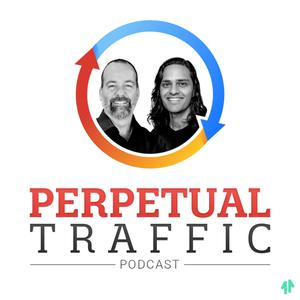 Perpetual Traffic
Perpetual Traffic
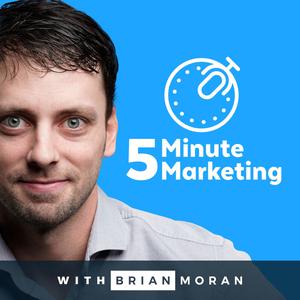 5 Minute Marketing with Brian Moran
5 Minute Marketing with Brian Moran
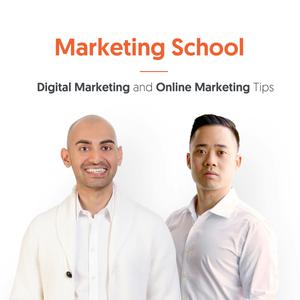 Marketing School - Digital Marketing and Online Marketing Tips
Marketing School - Digital Marketing and Online Marketing Tips
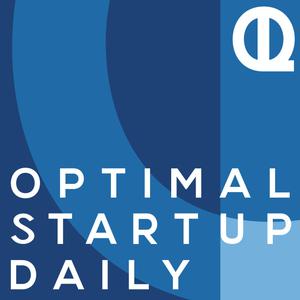 Optimal StartUp Daily
Optimal StartUp Daily
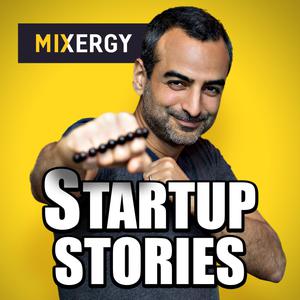 Startup Stories - Mixergy
Startup Stories - Mixergy
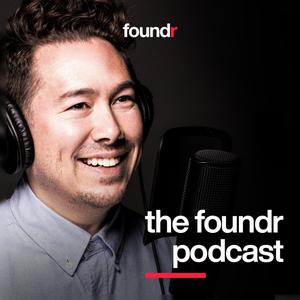 The Foundr Podcast with Nathan Chan
The Foundr Podcast with Nathan Chan